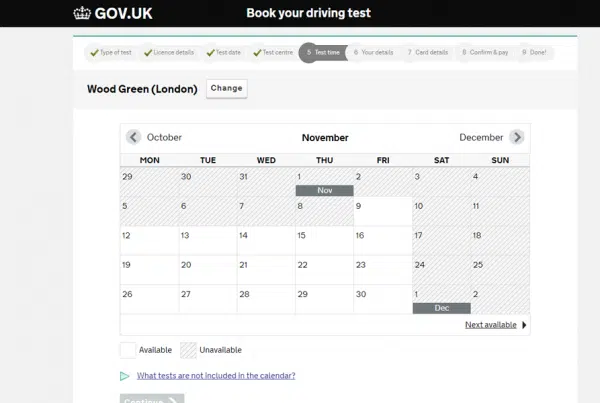A groundbreaking change takes effect in Wales today as speed limits in built-up areas transition from 30mph to 20mph, marking a first in the UK. This transformation has sparked controversy among some motorists, but Welsh ministers are adamant about its potential benefits, including a reduction in fatalities, noise levels, and an increased encouragement for people to embrace walking or cycling.
Global Support and Opposition
This move has garnered support from various organizations, including the United Nations, environmental groups, and road safety advocates. However, it has also faced opposition, with some politicians labeling it a “war on motorists.”
Defending the Decision
Welsh First Minister Mark Drakeford has defended the decision, emphasizing the potential lives saved by the minute-long extension to journeys. He stated, “It’s going to take you a minute longer to make your journey, and we will save 10 people’s lives in Wales every year as a result of that one-minute contribution – it doesn’t seem an unfair bargain.”
Implementation and Cost
The new law will alter speed limits on approximately 35% of Welsh roads, specifically those where lamp-posts are spaced no more than 200 yards (183m) apart. The Welsh government has estimated the cost of implementing this nationwide speed limit change to be £32.5 million, which they argue is justified by the reduction in the burden on the NHS and emergency services.
Public Opinion and Economic Impact
Despite the government’s commitment to this change, a consultation commissioned by the Welsh government revealed that more individuals were against the 20mph speed limit than in favor of it. Additionally, a government document recognized that longer journeys might result in a “substantial” economic disadvantage, estimating a potential economic impact of £4.5 billion over 30 years, albeit with acknowledged uncertainty regarding this figure.
Political Views
Critics of the new 20mph default limit, including UK government House of Commons leader Penny Mordaunt, have decried it as “insane” and a punishment for motorists. Welsh Conservatives support a 20mph limit near schools, hospitals, and care homes but have criticized the blanket rollout as “disastrous” and “ludicrous.”
Minimal Impact on Journey Times
Welsh ministers contend that the impact on journey times will be minimal, with drivers experiencing an average delay of less than one minute per trip. Mark Drakeford highlighted that, like the introduction of breathalyzers in the past, this change might take time for people to adapt to, but eventually, they will appreciate the benefits of reduced speeds in urban areas.
Global Support for 20mph Limits
Furthermore, he encouraged employers to consider the new limit for workers in industries such as social care and delivery, allowing them to perform their duties within the confines of the law. Support for the 20mph speed limit comes from the United Nations, which calls for 20mph or 30km/h (18.6mph) limits in cities, towns, and villages globally.
Support from Advocacy Groups
Various Welsh and UK-wide organizations, including Friends of the Earth Cymru, Action for Children, and Sustrans Cymru, have voiced their support for the change, viewing it as a significant step toward creating fairer streets and more livable communities. The European Transport Safety Council (ETSC) has lauded Wales’ lower speed limit as a “win-win” situation and commended the country for being among the first worldwide to implement such a change on a national level.
Reducing Road Collisions and Fatalities
The motivation behind Wales’ transition to a 20mph national speed limit lies in the belief that it will reduce road collisions, road fatalities, noise pollution, and promote walking and cycling. Official data shows that, in the past year, more people were killed or seriously injured in 30mph zones in Wales than in any other speed category. Of the 1,014 individuals killed or severely injured on Welsh roads in 2022, over 40% (421) were involved in incidents on 30mph roads. Road safety advocacy group Brake asserts that the risk of fatal injury is five times higher when a person is struck by a car traveling at 30mph compared to 20mph.
Implementation and Enforcement
As the new national speed limit, 20mph signs will be unnecessary on affected roads, except when the limit changes. The introduction of 20mph zones is not unique to Wales. The UK’s first 20mph zone was established in Tinsley, Sheffield, in 1991. Today, many counties, towns, and cities in the UK have 20mph limits on residential roads. Wales joins Spain, which implemented a similar nationwide change to 30km/h (19mph) in 2019. Notably, major European cities like Paris and Brussels have primarily adopted 30km/h (19mph) limits on their roads, and Amsterdam plans to follow suit later.
Wider Adoption and Road Safety
Road safety organization Brake has called for the 20mph default limit to extend to England, but the UK government has rejected this proposal. Scotland is still contemplating whether to adopt the change, while the Republic of Ireland has recommended a lower limit. Among the 22,000 miles (35,171 km) of road in Wales, approximately 7,700 miles (12,500 km) are set to transition from 30mph to 20mph from Sunday. This transformation will necessitate the replacement of around 30,000 road signs, as outlined in a map published by the Welsh government.
Enforcement and Adjustments
Regarding enforcement, starting Sunday, driving at speeds exceeding 20mph in built-up areas in Wales could result in a minimum £100 fine and three penalty points on one’s license. Police intend to take a proportionate and reasonable approach during the adjustment period, with an initial focus on education rather than strict enforcement. Officers will exercise discretion, and fines will mainly target those significantly exceeding the limit. However, fixed speed cameras will enforce the limit. It’s essential to note that not all 30mph roads in Wales will switch to 20mph; approximately 3% will retain their current speed limits, as local authorities can make exemptions if strong evidence suggests higher speeds are safe in certain areas.









